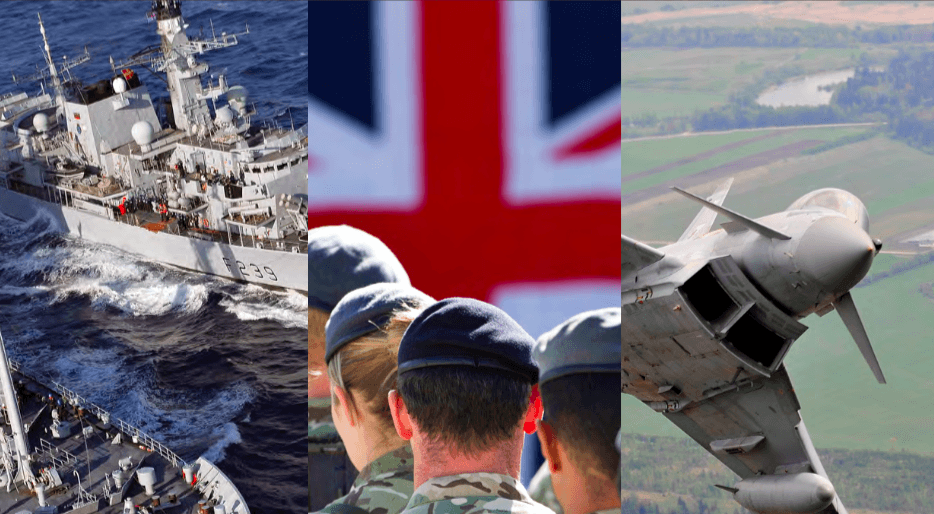Barry ET Harris MBE, Proelium Law Senior Advisor and UK Army veteran, shares thoughts on how to successfully transition from the military to civilian life.
Do you become a civilian? I think of myself as former Armed Forces, a Veteran. But it cannot be ignored that it is necessary to make some changes to blend into this new tribe, Civilians, to make an impact and succeed.
Of course, there is no reason why you should not be successful; you have the advantage of coming from an elite background – the United Kingdom Armed Forces are held in the highest regard, worldwide, and this is a qualification that will carry you far. I remember the Sergeant Major berating us, and calling us Civvies, and even using that label myself to others when it became my turn to do so.
Wunce I kooldnt evan spel civy, now I is wun!
Those of you who will inevitably climb the ladder of success, do not forget where you came from and shake the dust off your shoes, dress smart, walk tall, be proud, set an example.
Do not make it difficult for yourself to integrate, survive, and thrive when the time comes for you to step aside from a ranking position, and blend into civilian life, you will always be a Veteran.
Transition doesn’t end when you receive your little red book, a pension, and report to your first job. It is true that nothing is more depressing than leaving the top of your game in the Armed Forces and transforming to the civilian world not getting that same feeling of respect, responsibility, and accomplishment. But, there are incredible opportunities for Veterans who are willing to take charge of their evolution and work as hard or harder.
WORK HARDER THAN EVERYONE ELSE
Did the Sergeant Major ever tell you how special and unique you were for joining up? No, nor did mine. Civilian life is not unlimited beer fountains (sadly), beards, and sleeping through physical training every day. However, take a holiday once you leave, and formulate your plans for the future. You worked hard in the Armed Forces in short time windows creating mission winning results.
Civilians work every day, results are expected, normally there is no option to repeat a task until it meets the required standard. Speed and efficiency are required, careful time management is a critical need. Do not think that you can run circles around your colleagues. Prepare yourself mentally for hard work that will raise you to the level of personal success that meets your expectations after leaving the Armed Forces.
LEARN HOW TO TELL YOUR STORY
As a Veteran, you need to share your story. People will want to know about your experiences, so couch it in terms that they will understand. It will help to bridge the civilian-military divide and can dispel Veteran stereotypes.
Demonstrate that you are affable as that is an important factor in upward mobility. Many motivational speakers show that telling a story is a ticket to success. Be introspective reflect upon your experiences, and communicate your story in a way that engenders friends within your workplace.
Whenever I tell a story that starts with “When I was in the Army” my partner automatically rolls her eyes skywards, and I realise that I could sound a bit like Lance Corporal Jones from Dads Army – make your story work for you, learn how to tell it. Veteran stories can have positive impacts on your friends and colleagues; many have difficulty overcoming some of this life’s obstacles and can benefit a lot from your experiences.
HELP THE TEAM TO HELP YOURSELF
In the Armed Forces, you contributed to mission success. There were always those duties that nobody wanted, like guard duty over a long weekend. It is no different in the civilian world. Work to share credit, tackle group challenges, aid habitually and carefully to your colleagues. Contribute to meeting organisational goals and build a reputation for being a talented individual who will step outside of your comfort zone for the benefit of the team; this is the positive attention that highlights the capabilities that will demonstrate your high value, and that of all Veterans.
It is hard to be a civilian, you never truly convert, you will always be a Veteran.
“The Armed Forces Covenant is a promise by the nation to ensure that those who serve, those who have served, and their families are treated fairly.” The Armed Forces Covenant annual report 2016.
‘Read the Armed Forces Covenant Annual Report 2016’ –
Need advice?
If you’d like further information, or to discuss working with us, please get in touch






